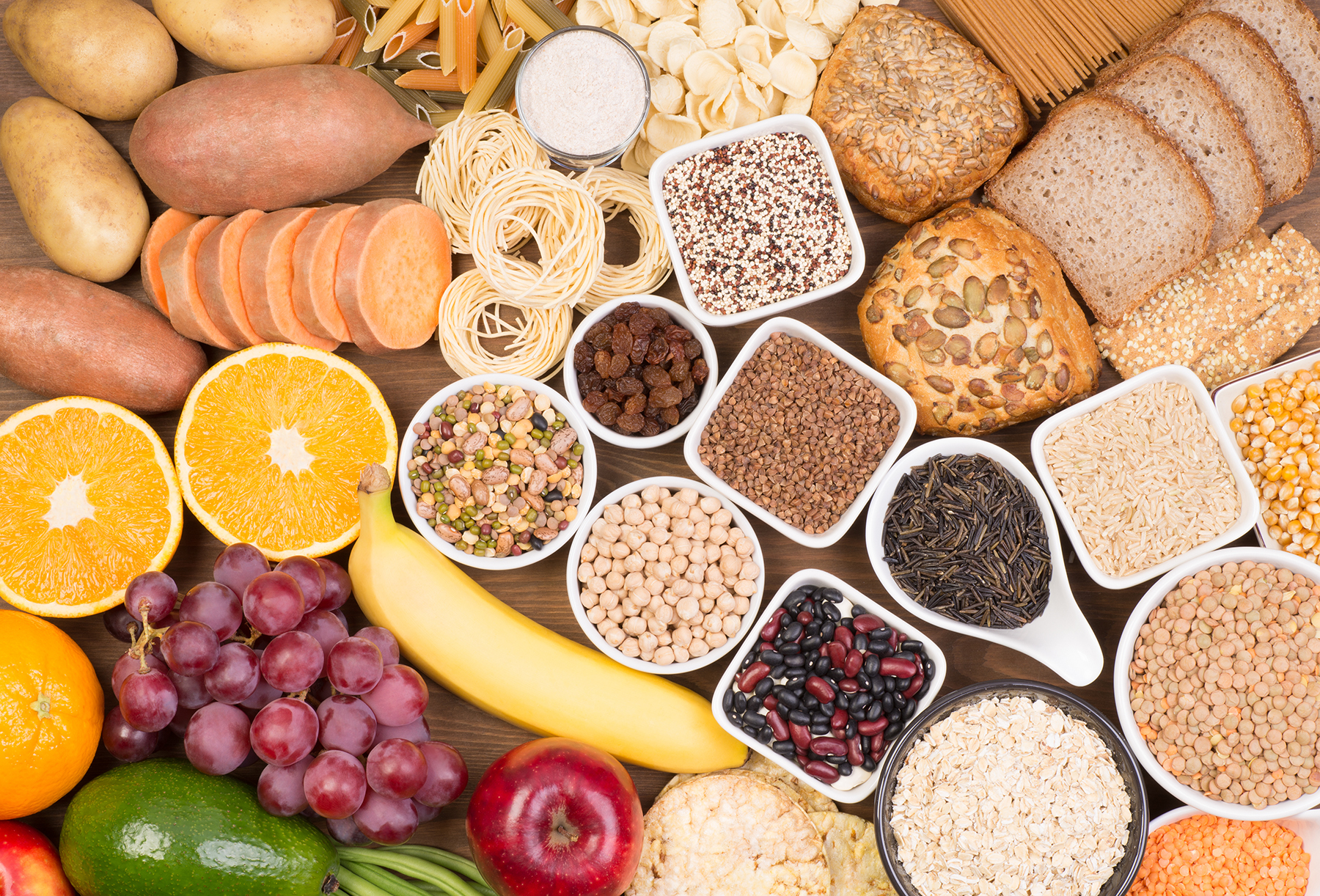Does This Carb Make Me Look Fat?

This year, you’re trying to eat healthy and lose those extra pounds by sticking to a balanced diet including fruits and vegetables, whole grains and low-fat dairy products. But you’ve heard that carbs are a diet-killer and you’re going to gain weight if you so much as look at a bowl of pasta. But what about whole grain pasta? Is that a better option for weight loss?
What about a banana? Should you avoid all fruits, too, because they contain natural sugars?
The rumors and myths about carbs can be confusing, and the truth is not all carbs are created equal. But, with some nutritional facts, you can make informed choices about your diet that affect your waistline and your overall health.
Whole grains
You’ll find the words “whole grain” on packaging for granola bars, cereals, crackers, pastas, and breads. This means these products are made with minimally processed grains, which are proven to help with weight maintenance, as well as reduce the risk of stroke, heart disease, and type 2 diabetes.
But, processed whole grain products are also typically full of refined sugars and flours, which can contribute to weight gain, especially when you indulge beyond the recommended serving size. To ensure that the whole-grain foods you eat aren’t doing more harm than good, registered dietitian Sheah Rarback, with the University of Miami Health System, recommends you “check out the ingredients label. A whole grain should be listed first, as the main ingredient. Avoid products that say they include whole grains, yet list an enriched flour as the first ingredient. Enriched flours are not whole grains. And choose items low in added sugar.”
Smart choices include whole grain oats, brown rice, quinoa, and barley because they provide fiber, which leaves you feeling full and helps maintain regularity.
Fruits
Yes, fruits contain natural sugars, which is why they’re considered carbohydrates. But the nutritional value of fruits is much closer to that of vegetables than candy bars. That’s because whole and cut fruits (not fruit juices alone) also provide fiber and vitamins.
“If weight loss is your goal, you don’t want to go overboard, even with apples and oranges,” said Rarback. “But fruit can be a good substitute for the refined sugars found in packaged sweets and sugary drinks.” The goal is to significantly lower your total daily sugar consumption to promote a healthy weight.
Starchy vegetables
Just when you thought all vegetables were good for you, you heard that starchy ones—like potatoes, corn, and squash—are also high in carbs.
Like fruits, starchy vegetables contain natural sugars and, therefore, should be eaten in moderation if you’re trying to lose weight. But, even a baked white potato offers some fiber, making it a smarter choice than, say, mac and cheese. An even better option is sweet potatoes, which still contain starch but also provide more fiber than white potatoes. As with any healthy alternative, don’t diminish the benefits by adding too much cream, butter, salt or mini marshmallows.
Dairy, the unexpected carb
You may be surprised to learn that the yogurt you enjoyed with your lunch includes added or naturally occurring sugars. Take a look at the label, and while you’re at it, peek at your milk carton, too.
While sugars are a natural ingredient of many dairy products, that doesn’t mean reduced-fat milk and yogurt can’t be part of a healthy diet that helps you reach your weight loss goals. “Look for options with zero grams of added sugars,” Rarback advises. “And, as always, limiting portion sizes is key to losing weight.”
Dana Kantrowitz is a contributor for UHealth’s news service.
Tags: carbohydrates, carbs, diet, eating healthy, Sheah Rarback, weight loss
